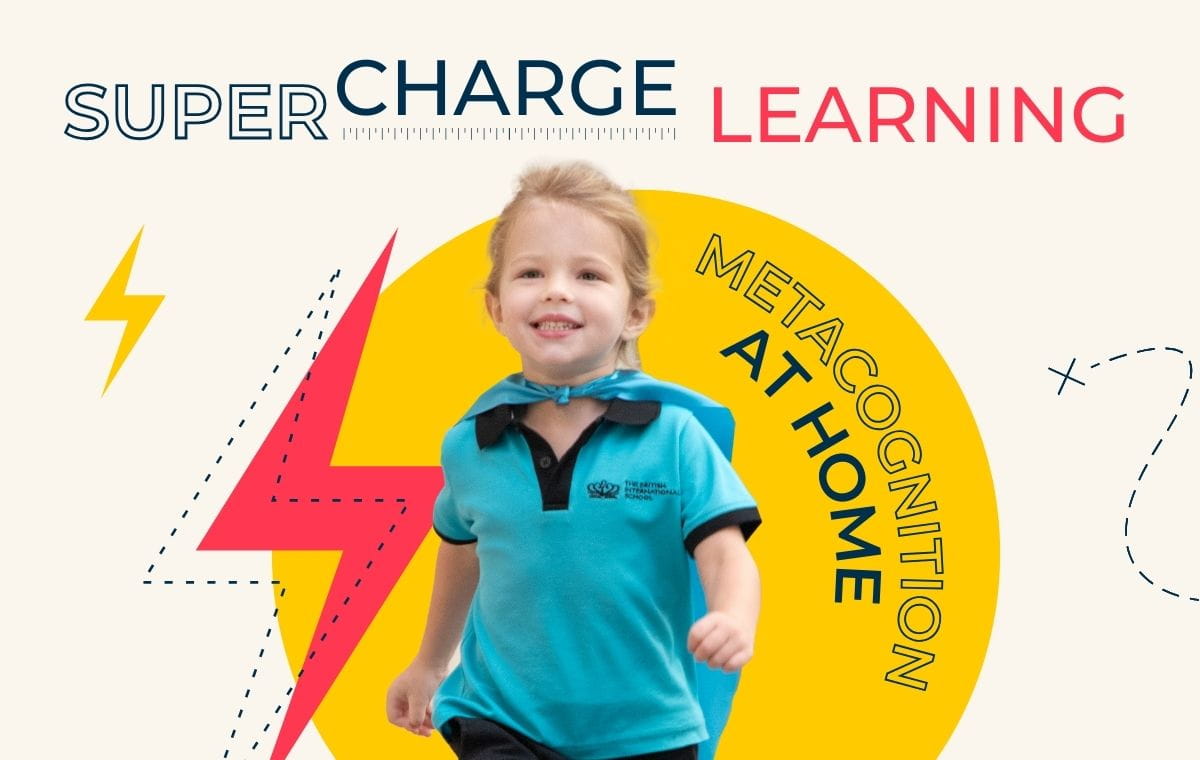Get Ready for Big School at BIS Abu Dhabi - For Ages 2-4
Enjoy free parent info sessions and fun guided play mornings every Tuesday from 17 February to 23 June 2026.

At The British International School (BIS) Abu Dhabi, we are committed to developing creativity, curiosity, compassion, collaboration, commitment, and critical thinking- also known as the Nord Anglia Education’s ‘6 Cs or ‘Learner Ambitions’- in our students. As a pilot school in Nord Anglia Education’s Metacognition Research Project, we are exploring how metacognitive practices can strengthen these essential qualities. To truly develop these learner ambitions, children must first learn to think in these ways. These qualities are embedded in our Star of the Week rewards and shape the way we support children’s learning, helping them grow both academically and personally.
This follow-up article delves deeper into three of the 6Cs – curiosity, critical thinking, and compassion – offering practical ways for parents to nurture these transformative skills at home. To truly develop these learner ambitions, children must first learn to think in those ways. To be curious, they must learn to think curiously. To be compassionate, they must learn to think compassionately. This is where Thinking Routines come in. Developed by Harvard Project Zero, these structured approaches scaffold children’s thinking, providing them with the tools to observe, analyse, and reflect more deeply. The goal is for these routines to become habits - ways of thinking that children naturally use in different situations.
The more consistently these routines are used, the more naturally they become part of a child’s mindset. However, these are not just classroom tools - they are simple yet powerful strategies that can also be used at home to extend children’s thinking in everyday situations. The more consistently they are used, the more naturally they become part of a child’s way of thinking.
Purpose: Encourages observation, inference, and questioning skills, helping children become more curious about the world around them.
How to Use It at Home:
Why It Matters: Curiosity is at the heart of learning. The more children question and wonder about what they see, the more engaged they become in exploring new ideas. This routine scaffolds them to think curiously, helping them develop an enquiring mind. With consistent use, children begin to ask these questions instinctively, making curiosity a natural part of how they approach the world.
Purpose: Helps children consider different perspectives, weigh up options, and make thoughtful decisions, building their ability to think critically.
How to Use It at Home:
Why It Matters: Critical thinking is essential for making informed decisions. This routine helps children break down their thinking and consider all angles before forming an opinion. By using it consistently, they learn to naturally think critically - evaluating information carefully rather than reacting impulsively.
Purpose: Encourages empathy by helping children consider another person’s perspective before reflecting on their own.
How to Use It at Home:
Why It Matters: Compassion begins with understanding. This routine scaffolds children to think compassionately - helping them recognise different viewpoints and develop deeper empathy. Over time, it encourages them to step into other people’s shoes instinctively, making compassion a natural part of how they interact with others.
One of the most effective ways to ensure Thinking Routines become just that -routines - is through consistent language. The more often children hear and use these specific question structures, the more naturally they begin to think in these ways. For example:
A child who is regularly asked "What do you see? What do you think? What do you wonder?" will begin to approach new situations with curiosity and a desire to explore.
A child who is guided through Compass Points when making decisions will start to naturally consider multiple perspectives before making choices.
A child who frequently engages in Step In, Step Out, Step Back will become more empathetic, instinctively thinking about how others feel before responding.
By weaving these routines into daily conversations - whether discussing a book, making a decision, or reflecting on a situation - parents can reinforce the same thinking structures that we use in school. Over time, these structured ways of thinking become second nature, shaping how children approach learning and interactions in all aspects of life.
At BIS Abu Dhabi, we believe that learning does not stop when children leave the classroom. By embedding these simple Thinking Routines into everyday conversations at home, parents can play a vital role in helping their child develop key life skills. These routines do more than just support academic progress - they help shape children into curious, compassionate, and critical thinkers who can navigate the world with confidence and thoughtfulness.
When children consistently engage in structured thinking, they become more aware of how they learn and interact with others. This not only enhances their academic achievement but also strengthens their ability to understand the world, solve problems, and connect with people on a deeper level.
If you enjoyed our article on Turning Everyday Moments into Learning Opportunities, don’t miss this follow-up article on Simple Ways to Keep Curiosity Alive Over the Summer Break. It explores how metacognitive thinking routines like See–Think–Wonder and See–Wonder–Connect can transform holiday experiences into powerful learning moments
Aaron Regan
Year 5 Teacher, Curriculum Leader and Metacognition Lead